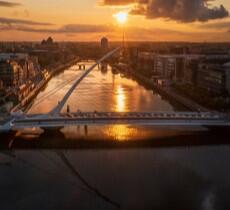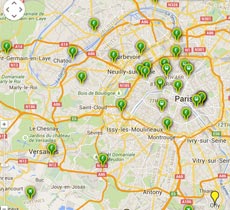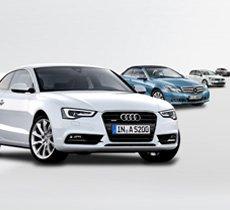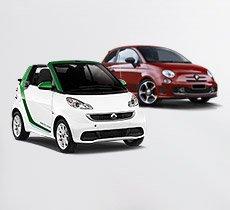- Mobility Solutions
-
Deals
Local dealsWorldwide deals
-
Worldwide Locations
Top CountriesTop Stations
- Fleet
-
Services
Loyalty and Partner offersGeneral InformationContacts
General Information
| Capital | Muscat |
| Government | Sultanate since 1744 |
| Head of State & Government | Sultan Haitham Bin Tarek since 2020 |
| Language | Arabic is the official language, but English is widely spoken. |
| Local Time | GMT +4 hours |
| National Day | 18 November |
| Population | The total population is 3,300,000 people, including approximately 600,000 foreigners (2008). |
| Superficy | 309,500 sq km (119,500 sq miles) |

Alcohol
Alcohol is served in hotels and licensed restaurants and bars. However, drinking in public is not permitted. It is also illegal to carry alcohol in the car.
Bargaining
Bargaining is expected in the souk but is not quite usual elsewhere.
Business Hours
Most shops and malls are opened from 9.00 am to 1.00 pm and 4.00 pm to 9.00 pm. During Ramadan, the shops close later in the night. Embassies and Consulates are open from 8.00 am to 12.00 noon, Saturday to Wednesday. Banking hours are Sunday to Thursday from 8.00 am to 13.00 noon. The weekly national day off is the Friday.
Climate
The Summer months are between May and September when the weather is hot and humid. The best time to visit Oman is between October and April when temperature ranges between 25 and 35 C during the day and between 17 and 22 C at night. All buildings and vehicles are air conditioned in Oman.
The summer monsoon only touches the southern coast of Dhofar, which experiences during these months (July/August) regular light rain and reduced average daytime highs to 30° C.
Clothing
Oman is deeply conservative though tolerant of others beliefs, practices and customs. Therefore, Omanis would not approve insufficient dressed men or women though they would not say anything so as not to offend you. It is best to be well dressed in all public spaces. The dress code is fairly liberal in Muscat, although decency is still expected. In the Interior, women are requested to wear tops covering the shoulders and non-revealing clothing in public. Swimwear should be restricted to the beach or pools.
Light and loose-fitting summer clothing in cotton is ideal for most of the year. Sweaters, light jackets or shawls may be needed for the cooler winter evenings.
Customs
No custom duty is levied on personal effects brought into Oman. It is forbidden to import drugs, arms, narcotics and pornographic material. Such materials are immediately seized. Non-Muslims may import up to two bottles of alcohol when traveling by air. The import of alcohol through land borders is prohibited.
Driving in Oman
Self-drive throughout the country is quite easy: the signs are all translated to English and people around are always ready to help! Here are few basic rules that are to be followed:
- Driving is on the right hand side of the road.
- Wearing the seatbelt is compulsory.
- It is prohibited to use your mobile phone while driving.
- Driving while under the influence of alcohol, drugs, etc. is prohibited.
- The driving speed limit on main city roads and highways is between 80km/hr and 120km/hr.
- Visitors with valid European, American, GCC or International driving license can drive only Rent a Car in Oman.
- In case of minor road accident, if the two parties agree, they can fill up the minor accident report themselves and approach the Car rental company and the insurance company directly instead of calling the police.
- In case of accident where injuries to people and/or damages to property are involved, or if more than 2 vehicles are involved or in case of major accident, then a police report must be issued on the spot and the vehicles should not be moved until the police arrives.
- In all cases, it is strongly advised to always carry your documentation with you.
- Roads are monitored by fixed and moveable radars. Over speeding is a traffic violation and is directly transferred to the Royal Omani Police. An appropriate fine is levied, with a minimum of ten Omani Rials. The fine amount will increase depending on the over speeding and other penalties could also be imposed. Jumping a red light is a major traffic violation and can result in heavier fines and penalties.
Click here to see our fleet and book a vehicle

Electricity
The electrical system is based on 220 volts - 240 volts, 50 Hz with 3-pin British type plugs. Electrical appliances having other plug type may require an adaptor.
Environment & People
- Courtesy: The people of Oman are extremely hospitable and offer a very warm welcome to guests. It is considered good manners to exchange greetings and these courtesies should be observed wherever possible.
- Etiquette: Littering is prohibited. Particularly when hiking and camping, be sure that you do not leave any trash. Polluting a falaj (irrigation system) is not permitted at all. We invite all visitors to always be respectful and courteous towards local people, furthermore in the Interior.
Facilities for the physically challenged
Most hotels and public places provide facilities and make special arrangements for physically challenged visitors.
HealthMatters
Hospitals, pharmacies and health clinics are available throughout Oman. Most hotels have medical help available and there are private and government medical facilities available.
Internet
Internet is available in major hotels and there are Internet cafes in major cities like Muscat, Nizwa, Salalah.
Location
The Sultanate of Oman is situated on the southeast corner of the Arabian Peninsula. The coastline extends 1,700 Km from the Strait of Hormuz in the north, to the borders of the Republic of Yemen in the south and overlooks three seas: the Arabian Gulf, the Gulf of Oman and the Arabian Sea. The Sultanate borders Kingdom of Saudi Arabia in the West; the United Arab Emirates in the Northwest, the Republic of Yemen in the South; the Strait of Hormuz in the North and the Arabian Sea in the East. The Musandam Peninsula forms the country's northern tip, and is separated from the rest of the Sultanate by United Arab Emirates' eastern coast and includes the only coast the Sultanate has on the Arabian Gulf. Musandam is just over 50 Km south of the Islamic Republic of Iran across the Strait of Hormuz. The total land area is around 309,500 Km2.
MobilePhones
Oman has an extensive GSM network. Visitors can avoid roaming charges by purchasing a prepaid SIM card at the mobile phone service providers at the airport or in town.
Money
Oman's currency is the Omani Rial (OMR or RO) and is divided into 1000 baisas. The rate conversion is 1 OMR = 2.65 US$.
All major credit cards are accepted in Oman, including Visa, MasterCard, American Express, etc. Most retail outlets, hotels and restaurants accept major credit cards but in the traditional souks, cash is the most preferred way of payment. ATM: withdrawal can easily be made from automated bank tellers found in all regions of the country.
Official Holidays
National Day is on 18th November every year although National Day holidays may take place few days later. Dates vary for the rest of the official holidays as they follow the lunar year. Eid Al-Fitr, Eid Al-Adha, Islamic New Year, the Prophet Mohammed's birthday, Ascension Day. Local newspapers announce the actual dates of holidays as they occur.

Photography
Photographers will love Oman for the variety of its sceneries and subjects. However, photographing at the border or at military installations and embassies is not permitted. Always observe 'No Photography' signs. It is considered offensive to photograph Muslim women. Please ask for permission before taking photographs of people and their property.
Ramadan
Ramadan is the holy month of praying and fasting when Muslims abstain from eating, drinking and smoking during daylight hours. As a sign of respect, visitors are also required to refrain from these activities in public between sunrise and sunset. Bars are closed and no alcohol is served. However, major hotels allow alcohol consumption through room service and in designated outlets. Major hotels also serve lunch throughout Ramadan. Dress code should be strictly observed. At the end of 30 days or on sighting of the moon, Eid Al Fitr is celebrated. Ramadan advances 10 to 11 days each year as it is governed by the lunar calendar.
Religion
Islam is the official religion while other faiths are also respected. The Omani culture has its roots deeply anchored in the Islamic religion. Oman developed its own particular form of Islam, called Ibadhism, after its founder Abdullah ibn Ibadh, who lived during the 7th century AD. Not all Omanis are Ibadhis however; there are also Sunni and Shi'a Muslims. Omanis are not only tolerant of the beliefs of different Muslim divisions, they are also tolerant towards believers of other faiths, who are allowed to practice their religion in churches and temples. Beautiful, ornate mosques are found throughout the Sultanate, but they are not open to non-Muslim visitors.
Security
The Sultanate of Oman is a secure and safe country for the visitors.
Tipping
In hotels and restaurants a service charge is included in the bill. However, it is customary to tip for attentive service.
Travelling to Oman
Muscat, the capital, is accessible from most international airports by various international airlines into and out of Muscat International Airport. There are direct flights from many major European cities and not less than 25 international airlines are servicing Muscat International Airport, including British Airways, Lufthansa, Swiss International, KLM, Air India, Emirates, Etihad, Qatar Airways, Gulf Air, and of course the continuously growing Oman Air.
By land, Oman is accessible through the UAE and Yemen though one needs to have valid visa and entry permits. There are three border posts open to foreigners from the UAE and two border posts open from Yemen. The Oman National Transport Company operates buses to Dubai daily from its bus station in Ruwi. Dubai is 450 kms away from Muscat, and the journey takes approximately 5 hours by road.

Travelling within Oman
Oman Air also operates national flights from Muscat International Airport to Salalah and Khasab. The flight takes approximately one hour to Khasab and one and a half hour to Salalah.
The National Ferries Company operates a passenger ferry from Muscat to Khasab several times a week. It takes approximately six hours.
Oman is not equipped with train services.
Travelling within Oman by road is comfortable and well organized. Well maintained highways link every major city in Oman.
The Oman National Transport Company has buses that travel throughout the country. The main bus station is in Ruwi, where a timetable is posted.
There are plenty of taxis: orange and white saloon cars or mini-buses with an orange light on the front. Taxi fares are reasonable. The mini-buses are shared taxis and the rate is extremely cheap. In all cases, ask for the fare before boarding. Some of them might not be air-conditioned.
Muscat has an extensive rent a car system. You could rent from a saloon car to even 4 wheel drive vehicles provided you have a valid International license. See Driving in Oman section above for more details and tips. See our Fleet section for more details.
Visa
The Royal Oman Police (ROP) is the authoritative body for the issuance of visas in the Sultanate of Oman. Citizens of over 60 countries can obtain on arrival visit visas valid for a one-month stay. See our Visa section for more details
Water
Although tap water is clean, it is advisable to drink bottled water.
Way of life
The Omani people are friendly in nature, welcoming to visitors and always offering incomparable hospitality. The Omanis are very polite and, even when offended, will rarely mention it to their guests. Visitors are thus expected to respect their hosts and be careful not to cause unnecessary offense. Women in Oman take a full part in national life. They are free to drive and pursue careers in the government and commercial sector on a par with their male colleagues. A commitment to friendship, hospitality and family solidarity is the firm foundation of Omani's lifestyle. Shaking hands is the usual form of greeting in the Sultanate. Although Arabic is the main language, English is frequently spoken and is often used. Despite their relaxed air, the Omanis are quite conservative people. Respect for their privacy and their religion, in particular, should always be observed.














